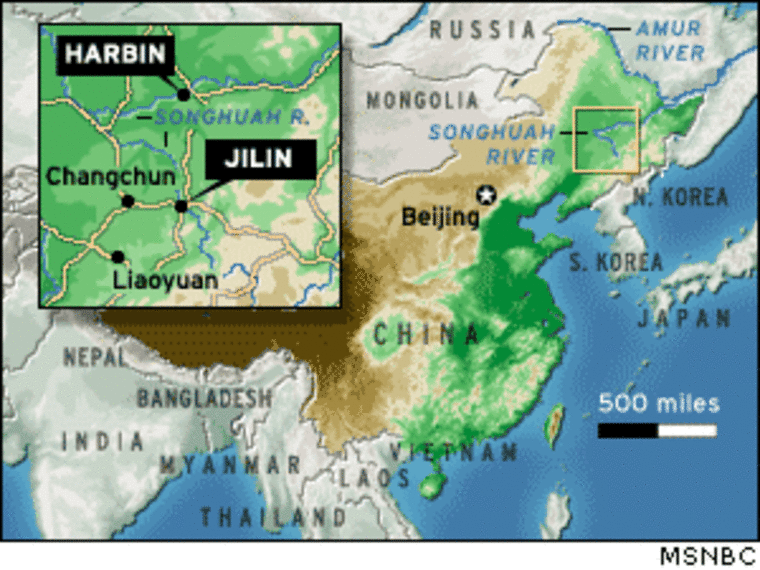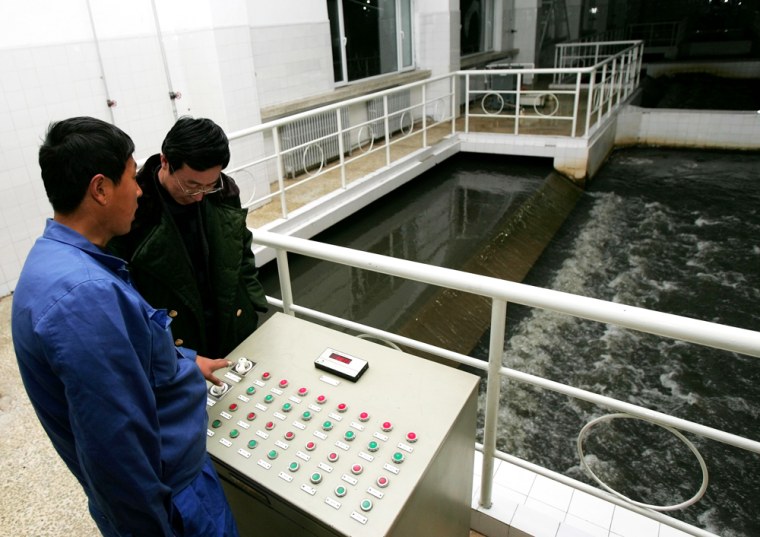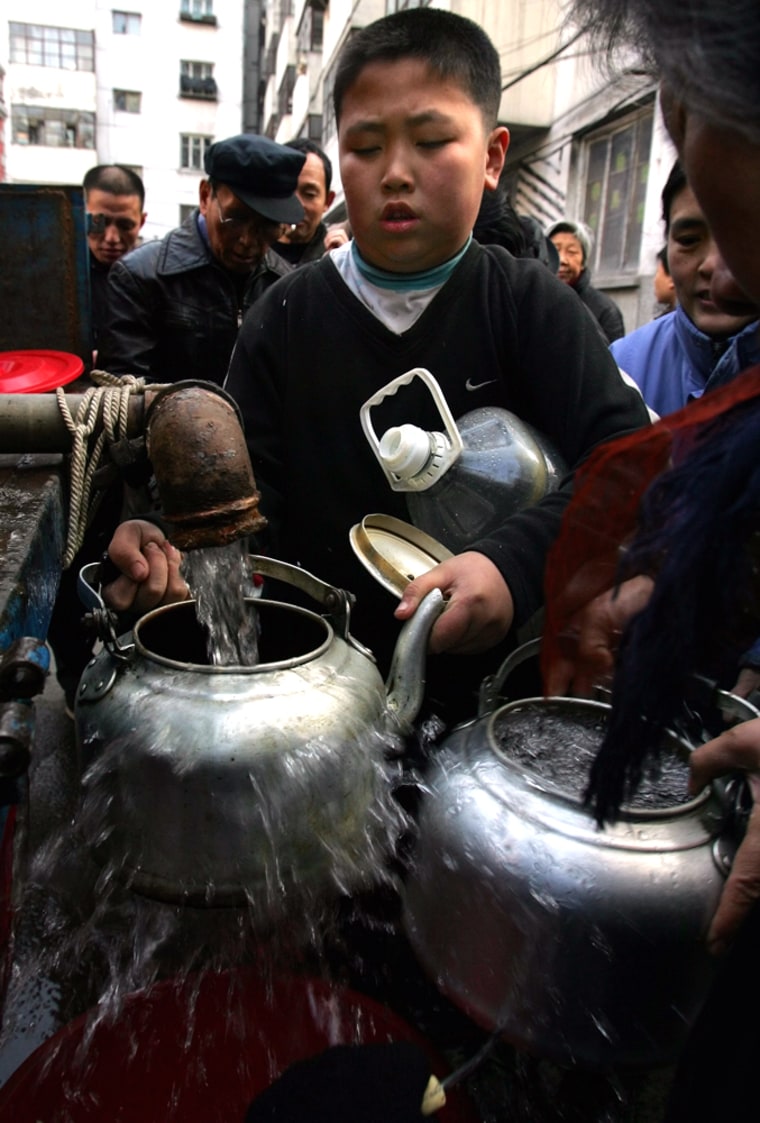Water tainted by a toxic chemical spill upstream from this northern Chinese city was declared safe for drinking Tuesday, five days after supplies to 3.8 million people were shut down.
The spill was a political disaster for President Hu Jintao’s government and cast a harsh light on the environmental costs of China’s breakneck development, prompting Hu’s government to apologize to the public and to Russia, where a border city downstream is bracing for the arrival of the 50-mile-long benzene slick.
“Harbin’s water is now safe to use and drink,” Xiu Tinggong, vice director of the city’s health inspection bureau, said on local television. “Everybody can rest assured that the water is safe.”
Running water was turned back on in Harbin, the capital of northeastern Heilongjiang province, on Sunday after supplies were shut down following a Nov. 13 explosion at a nearby chemical plant that spewed toxins in the Songhua River.
Officials warned then that the water was not immediately safe to drink after lying in underground pipes for five days.
Beijing has offered no estimates on how many people rely on the Songhua for drinking water.
On Monday, 10,000 people downstream in Yilan County were without water service, China Central Television reported.
State media have accused officials of lying about and trying to conceal the spill — the result of a Nov. 13 chemical plant blast in Jilin, a city upstream from Harbin, that killed five people and forced 10,000 more to flee their homes.
But on Monday, media coverage was effusively upbeat, with newspaper photos showing smiling children in Harbin running their taps and water surging through treatment plants.
“We won!” said a headline in the newspaper Life News below a photo of the provincial governor drinking a glass of boiled tap water on Sunday.
Premier Wen Jiabao has promised to investigate the disaster and punish those responsible. But state media also have been portraying efforts to keep this major industrial city supplied with drinking water as a triumph for the communist system.
The disaster nonetheless highlighted the costs of China’s breakneck economic development, which has lifted millions out of poverty but left environmental protections in shambles.

In Russia, the nation’s emergency agency said Monday it was preparing to switch off running water in affected areas and airlift activated carbon for use in water treatment facilities to help absorb the spill.
The Songhua River flows into the larger Heilong River, which is called the Amur in Russia.
Russia’s Emergency Situations Ministry said the pollutants could affect 70 Russian cities and villages with a total of more than 1 million residents along the Amur, including Khabarovsk, a city of 580,000.
Officials said the benzene spill was expected to reach Khabarovsk around Dec. 10.
The plant where the spill happened is operated by a subsidiary of China’s biggest oil company, state-owned China National Petroleum Corp., which has apologized for the disaster.
The announcement that Harbin would suspend water service triggered panic buying of bottled water, soft drinks and milk. Schools closed, and residents stocked up on water in bathtubs and teakettles.

But despite the initial anxiety, many took the water cutoff stoically, lining up in biting cold for supplies from trucks.
China has suffered a string of such disasters in recent years, each leading to official promises of more rigorous enforcement of environmental rules or more sensitivity to public worries.
Industrial pollution is a sensitive issue, with protests reported nationwide over complaints that factory discharges are ruining crops and local water supplies.
Protesters often accuse officials of failing to enforce environmental standards, either in exchange for bribes or for fear of harming economic growth. The government says all major rivers are dangerously polluted, threatening water supplies for millions.
With its huge population, China ranks among countries with the smallest water supplies per person. Hundreds of cities regularly suffer water shortages.
